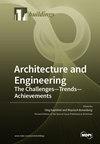基于模糊卡诺模型评估和建筑性能模拟的大城市城中村租赁空间研究:北京市朝阳区老君堂村案例研究
IF 3.1
3区 工程技术
Q2 CONSTRUCTION & BUILDING TECHNOLOGY
引用次数: 0
摘要
中国正处于城市化的转型期,原有特大城市快速发展过程中产生的土地利用失衡现象依然存在,导致城市周边地区保留了大量城中村。与正规住宅不同,这些城中村深受地方政府自上而下的政策与当地村民自下而上的自发建设之间的对抗与交织的影响,形成了多元而复杂的现状。同时,城中村自建房由于租金相对低廉,成为大量低收入流动人口的聚集地。就城中村住房现状研究而言,用户的真实需求和住房性能多为主观判断和结论。因此,本文以租赁空间和租赁者为切入点,以北京市朝阳区老君堂村为研究对象,分析其现状问题和使用者的真实需求。本文采用了模糊卡诺模型评价和建筑性能模拟的综合方法。通过对数据的分析和影响因素的讨论,本文指出了老君堂村租赁空间存在的具体问题和用户需求:(1)租赁空间的建筑性能是 "必备质量"(Must-be Quality),是底线要求,必须提高。(2)租赁空间的基本设施设备质量多为一维质量、吸引力质量,重视程度低于建筑性能。(3)租赁空间的外部活动设施多为无差别需求,本地用户的需求不是特别突出。(4) 本地住房的规模和容积率相对较高,用户不满意,有抱怨,属于逆向质量。本文章由计算机程序翻译,如有差异,请以英文原文为准。
Research on Leased Space of Urban Villages in Large Cities Based on Fuzzy Kano Model Evaluation and Building Performance Simulation: A Case Study of Laojuntang Village, Chaoyang District, Beijing
China is in the transition period of urbanization, and the imbalance of land use generated during the original rapid development of megacities still exists, resulting in the preservation of a large number of urban villages in the peripheral areas of cities. Unlike formal housing, these villages are heavily influenced by the confrontation and interweaving between top-down policies of local governments and bottom-up spontaneous construction by local villagers, resulting in a diverse and complex status quo. At the same time, self-built housing in urban villages has become a gathering place for a large number of low-income migrants due to its relatively low rental prices. In terms of the research of urban villages on the current situation of housing, the real needs of users and housing performance are mostly subjective judgments and conclusions. Therefore, the entry point of this paper is the leased space and the leasers, taking Laojuntang Village in Chaoyang District of Beijing as the research object and analyzing its current problems and the real needs of users. This paper adopts an integrated approach of fuzzy Kano model evaluation and building performance simulation. After analyzing the data and discussing the influencing factors, this paper identifies the specific problems and user needs that exist in leased spaces in Laojuntang Village: (1) The architectural performance of leased space is a Must-be Quality, which is the bottom-line requirement and must be improved. (2) The quality of the basic facilities and equipment of the leased space is mostly a One-dimensional Quality, Attractive Quality, and the degree of importance is lower than that of the building performance. (3) The external activity facilities of the leased space are mostly undifferentiated needs, for which the local users are not particularly prominent. (4) The scale and plot ratio of local housing is relatively high, and users are dissatisfied and complaining, which falls under the category of Reverse Quality.
求助全文
通过发布文献求助,成功后即可免费获取论文全文。
去求助
来源期刊

Buildings
Multiple-
CiteScore
3.40
自引率
26.30%
发文量
1883
审稿时长
11 weeks
期刊介绍:
BUILDINGS content is primarily staff-written and submitted information is evaluated by the editors for its value to the audience. Such information may be used in articles with appropriate attribution to the source. The editorial staff considers information on the following topics: -Issues directed at building owners and facility managers in North America -Issues relevant to existing buildings, including retrofits, maintenance and modernization -Solution-based content, such as tips and tricks -New construction but only with an eye to issues involving maintenance and operation We generally do not review the following topics because these are not relevant to our readers: -Information on the residential market with the exception of multifamily buildings -International news unrelated to the North American market -Real estate market updates or construction updates
 求助内容:
求助内容: 应助结果提醒方式:
应助结果提醒方式:


